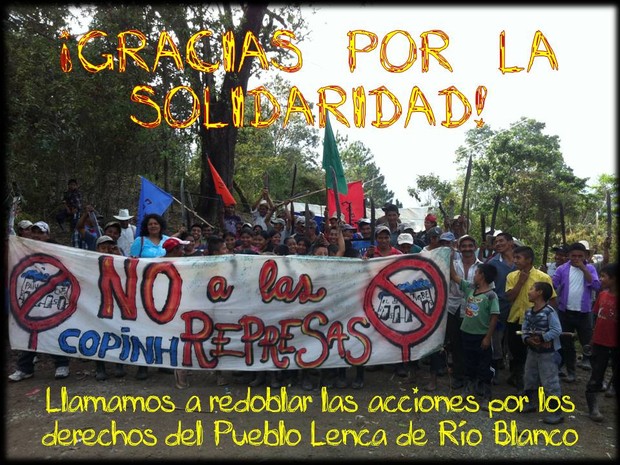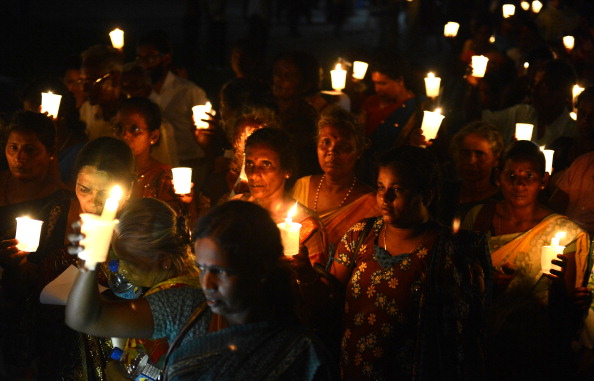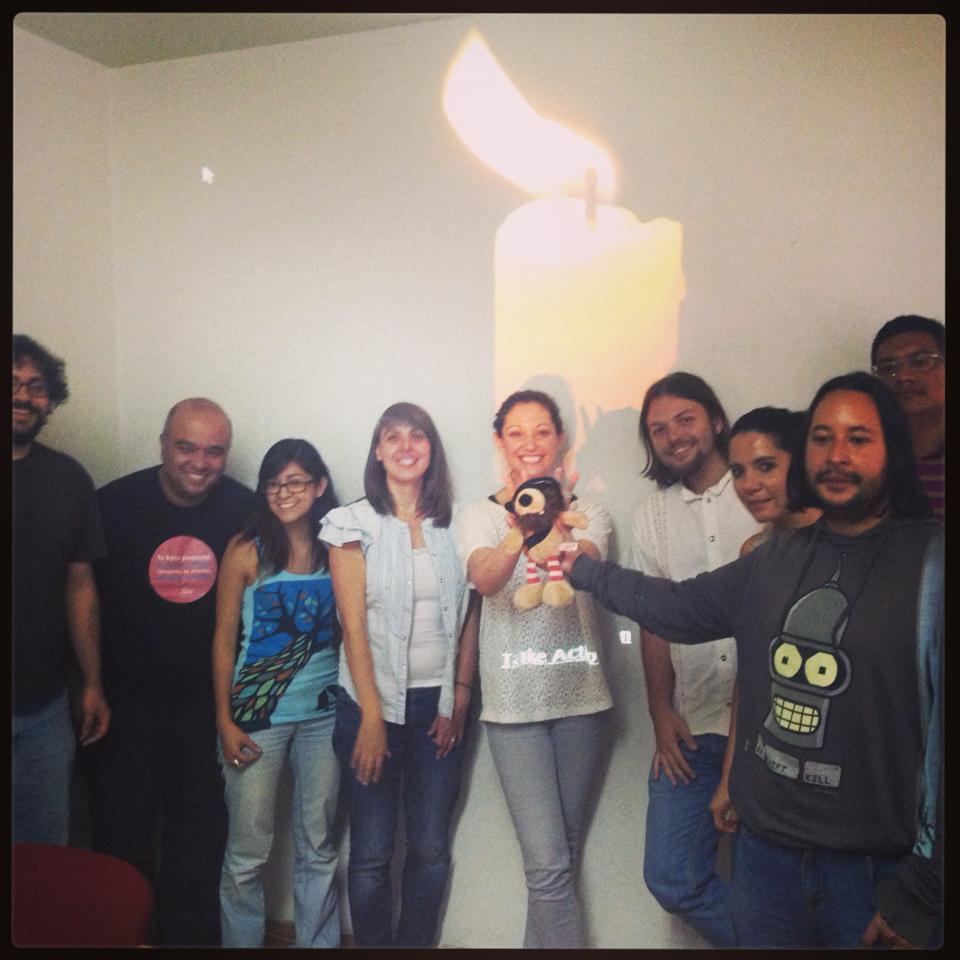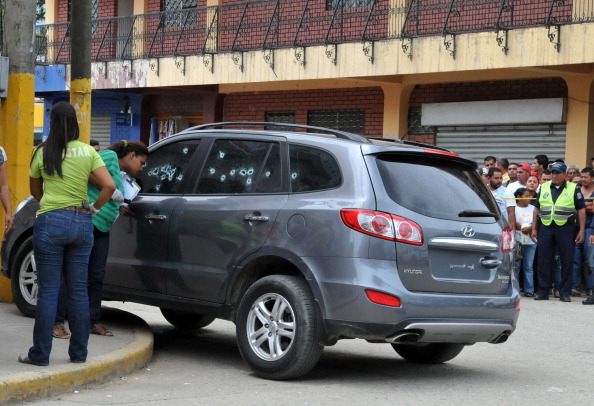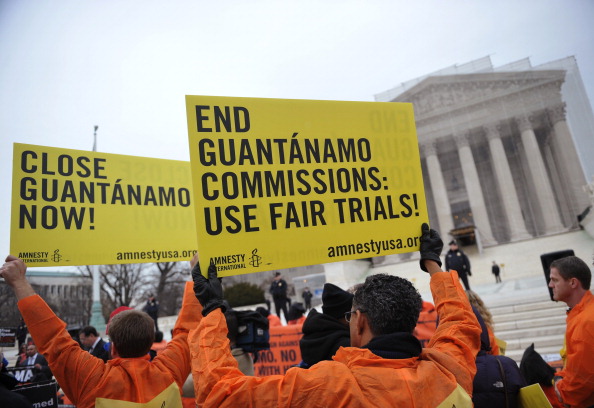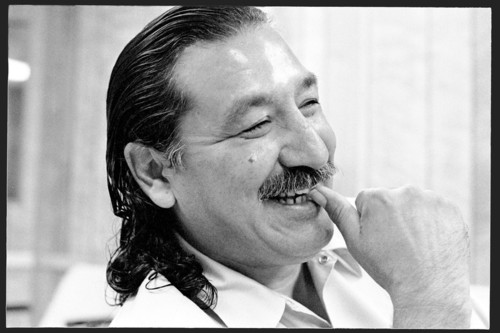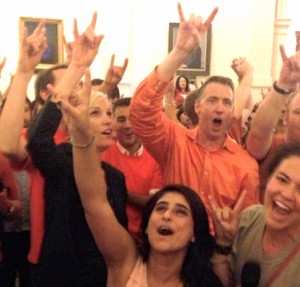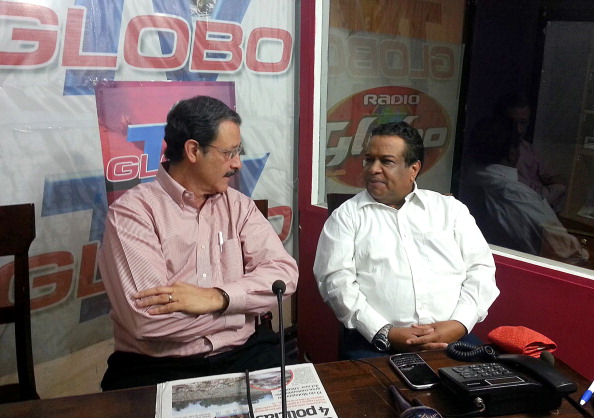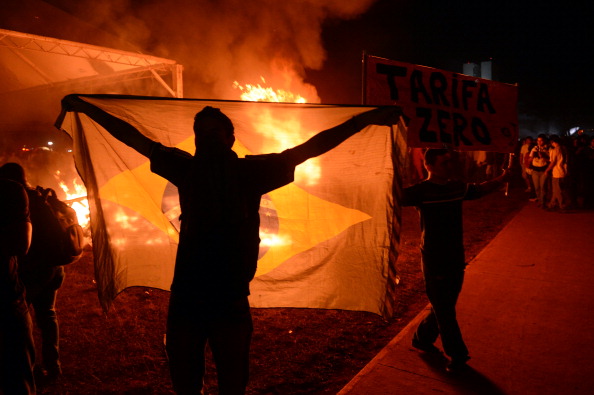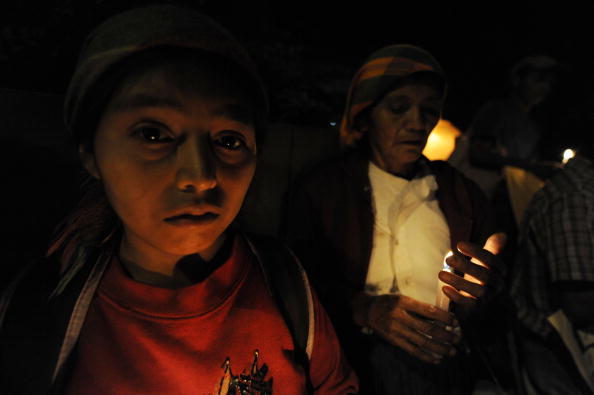
Members of the COPINH during a demonstration. Three members of the COPINH, Bertha Cáceres, Tomás Gómez and Aureliano Molina, are currently jailed or on probation for a series of blog posts and speeches accusing the Honduran government and a hydro-electric company of violating their indigenous community’s land rights (Photo Credit: Orlando Sierra/AFP/Getty Images).
In mid-September, Amnesty International issued an Urgent Action calling on the Honduran government to drop its unfounded charges against Bertha Cáceres, Tomás Gómez and Aureliano Molina of the Civic Council of the Indigenous and Popular Organizations of Honduras (COPINH). The organization warned, “If they are imprisoned, Amnesty International will consider them prisoners of conscience.”
First, thank you to everyone who took action! Unfortunately, however, the judge did not listen to us. On September 20, 2013, she ordered Cáceres to be held in prison. She also ordered Gómez and Molina placed on probation.
